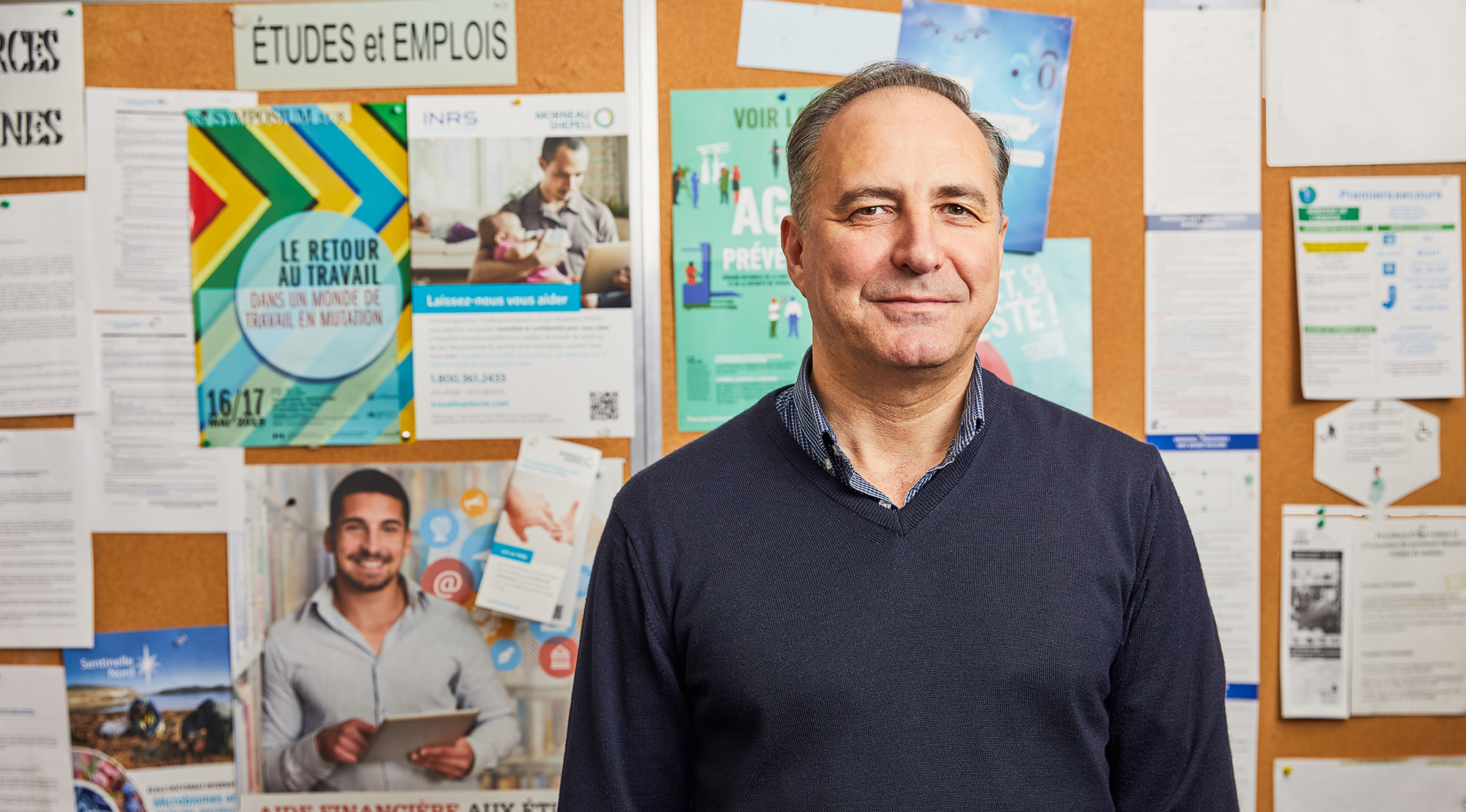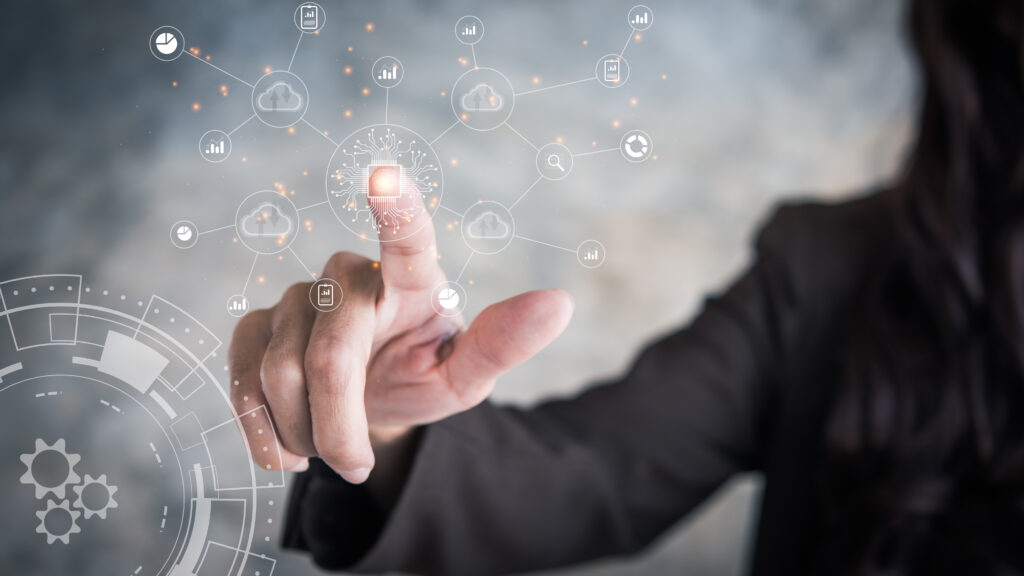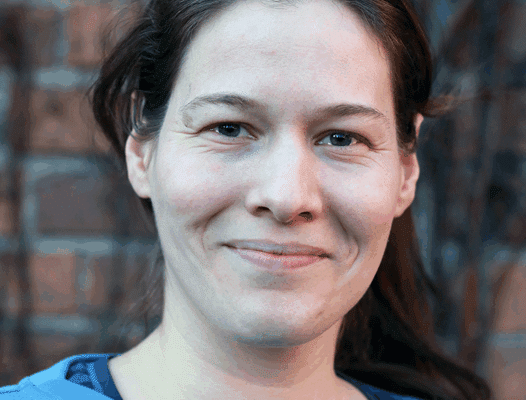- Overview
Professor Mircea Vultur discusses the many different facets of this new tool, which promises to revolutionize the way we work.

Photo : Phil Bernard
Professor Mircea Vultur researches labour recruitment practices and the skills and qualifications required for productive activity. More broadly, he looks at new forms of regulation in certain workplaces. The digital sector is one of his research interests, and artificial intelligence (AI) has naturally become an important focus. It’s a tool that has made incredible advances in recent years, and has worked its way into the fabric of people’s personal and professional lives.
The sociologist answers our questions.
Artificial intelligence is a vast field that is very much a hot topic these days. How is AI relevant to your research on the sociology of work?
I’m interested in youth work and the digital economy, which is largely driven by advances in AI. There are plenty of benefits to adopting AI in the workplace: it can simplify tasks and help with time and activity management, for example. It can also boost productivity and the speed and quality of the services companies provide to customers.
For workers, this technology has meant changes in the very nature of their work. It frees them from repetitive and dangerous tasks, and allows them to use their human skills to create new sources of value. For example, when routine tasks are automated, it leaves people with more time and energy to devote to innovative activities, encouraging the development of new products and services.
That said, AI does not always improve working conditions. One of the reasons for this is the focus on competitive advantage, rather than people’s well-being at work. For example, in warehouses like Amazon’s, shipments are prepared using AI-orchestrated voice guidance. The AI tells the people which aisle to put the parcels in. It puts workers under the control of voice technology, which means they have to work harder and their expertise is discounted. In the long term, it can even put them at an increased risk of mental illness.

In the workplace, as in society as a whole, AI is setting the stage for a new kind of power balance: one that involves power over (or anonymous mastery of) one’s tasks. The traditional “boss/worker” power structure that emerged with the Industrial Revolution is giving way to a new form of work organization, where the people doing the work are somewhat faceless. And since AI cannot be blamed for mistakes, it can result in a type of blame-shifting for workers and managers alike. From that perspective, AI can remove accountability and bring a risk of loss of individual freedom.
This way of working has consequences for many administrative and legal parts of our lives. Who is responsible for avoiding the pitfalls?
Currently, when it comes to AI regulation, the position of most governments and companies is based on compliance. They focus on using preventive measures to avoid exposure to the risks that come with failure to obey the law. The state sets out rules to follow and risks to assess for each AI-powered technology. Companies are required to comply, but they’re the ones verifying their compliance.
The principle of AI regulation therefore seems to be based on the idea that the government doesn’t have to deal with the technological side of things, because it shouldn’t slow innovation. Up to this point, at least, governments haven’t given themselves the legal means to regulate this technology and its applications in the workplace.
Is AI really the “magic wand” it seems to be?
For the future, we’re putting a lot of hope in AI technologies, but they won’t immediately solve the issue of real-world complexity. Randomness and unpredictability will always elude even the most powerful computer. These are two of AI’s blind spots, where I believe this form of intelligence finds its hard limit.
Over the next few years, it will be very interesting to see how AI evolves, both in the workplace and in society in general. As with all technological revolutions, it will depend on the balance of power between the actors involved in developing and disseminating AI, since technology is, at heart, the ultimate carrier of relationships of power.
We could see either a major domination of tech companies that develop various forms of AI and disseminate it in different sectors, accumulating significant wealth in the process, or a more democratic development of AI which, properly regulated, will help reduce socio-economic inequalities and the negative effects of the technology.
Want to find out more? In the spring of 2023, the Urbanisation Culture Société Research Centre researcher published Les plateformes de travail numériques: Polygraphie d’un nouveau modèle organisationnel [Digital Work Platforms: Overview of a New Organizational Model] through the Presses de l’Université Laval. Learn more here (in French).



